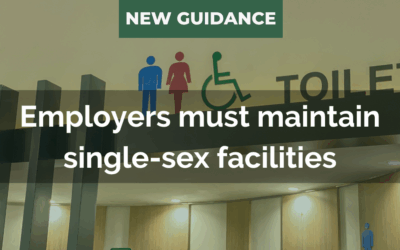Tipping is essential in the service industry, it not only acts as a direct feedback mechanism, allowing customers to express their satisfaction with the service received but it can also form a significant portion of income for many workers. The UK, traditionally not a country that tips has seen an increase in tipping, whether that be suggested or mandatory as well as tips being automatically added onto bills.
In March 2022, the Government announced plans to introduce a law to manage tipping and ensure that workers are receiving the fruits of their labour. The Employment (Allocation of Tips) Act 2023 and its supporting Statutory Code of Practice (the Code) will come into force on 1 October 2024. So what does the new law say and how will employers be affected?
What is the new law on tipping?
The Employment (Allocation of Tips) Act 2023 (the Act) states that all tips, service charges or gratuities which meet the qualification criteria have to be allocated to workers in full and in a fair and transparent way. Employers cannot deduct an administration or processing fee, anything that has been given by way of a tip must be passed onto the workers.
Although tips must be paid in full they are of course subject to Income Tax and may be subject to National Insurance, your accountant or payroll team can advise more on this.
Do all tips fall within the new tipping rules?
Tips which qualify under the new law are “employer-received tips” and “certain worker-received tips.” The key factor is whether or not the employer exercises control over the tips, the payment method is irrelevant. Where tips are paid by card there is obvious control, where tips are paid in cash there will be control if the employer determines how they are distributed for example.
Where a tip is non-monetary it could also fall within the new laws. A voucher for example could fall under the regulations if:
- It has a fixed monetary value;
- It can be exchanged for money, goods or services.
Do the tipping laws apply to all staff?
Yes. Whether they are a director employee or an agency worker the Act specifically states that they are entitled to their tips.
How can tips be fairly distributed?
The Code clearly states that it is for each employer what principles of fairness they wishes to adopt for their business, as long as fairness can be demonstrated. Of course, when implementing a tipping policy employers could consult with their workers and get “buy-in” from the start to remove the chances of upset or staff becoming disgruntled.
It should be noted that fairness does not mean that all tips needs to be distributed equally to all staff, although this does seem like the most fair method on the surface. Should an employer wish to differentiate between roles they need a legitimate reason to do so and should take into account all of the staff, including agency staff.
Employers are advised in the Code to consider the following, although this is not an exhaustive list:
- Type of role / work for example distribution between front of house and backroom workers;
- Basic pay (and how workers are engaged);
- Hours worked during period when tips are received;
- Individual and/or team performance;
- Seniority/level of responsibility;
- Length of time served with the employer;
- Customer intention.
Employers should of course manage the risk of discrimination when deciding upon the allocation of tips. The best way to avoid this is to split tips equally between all staff, but if this is not the chosen route employers should regularly review their practices to make sure discrimination has not occurred as a by-product of business growth and staff turnover for example.
How can I be transparent in the allocation of tips?
Employers are required by law to have a tipping policy where tips are made on more than an occasional basis. The policy should include how tips are accepted, allocated, distributed, and how the employer will deal with them fairly and transparently.
If you need help drafting your policy, our lawyers are on hand to help, simply get in touch.
The Code states that an employer will not be deemed transparent if individual workers are not aware of the policy, whether issued electronically or not. If you use our HR Software Solution talk to us about uploading your Tip Policy and specifying it as required reading for your team. Agency Workers must be provided with a copy of the policy of course.
Do I have to keep a record of tips?
Yes, the Act requires all employers to keep a transparent record of qualifying tips received and how they were allocated.
The record needs to be kept for three years starting with teh date on which the tip was paid. Where an employer has multiple sites a record should be kept for each site.
Workers have the right to request to see the record. Workers must make a request in writing but are limited to one request in a three-month period for a period dating back up to three years. Of course, the record is subject to the usual GDPR compliance standards.
When must I deal with tips under the new law?
The Act is clear in that employers must distribute all tips to staff by the end of the month following the month in which the tips are paid by customers. For example, if a tip is made on 12 November, it has to be distributed by 31 December at the latest.
How should I allocate tips to my staff?
There are a wide range of ways to allocate tips. An employer may receive the tips directly and then pay workers their share of the tips as part of the next payroll cycle. Or they could opt to allocate and distribute tips by using a tronc, in essence, a pot into which all tips are added into before being allocated. The non-statutory guidance clearly states that tips cannot be pooled across multiple sites however.
When operating a tronc system employers need to appoint an independent tronc operator; this can be:
- a member of staff (consulting or appointing by staff ballot is a useful method of getting staff trust in relation to this role);
- the payroll or accounting teams;
- A third-party firm.
Any tronc operator should be provided with clear instructions for the operation of the tronc in line with the fairness principles set down in the policy.
However, if the employer later becomes aware of an independent tronc operator acting in an unfair or improper manner, they are obliged to act to address this in order to maintain a fair allocation of tips; this could involve instructing the tronc operator to change its operation, or replacing the tronc operator with an alternative operator, or terminating the tronc arrangement altogether. If the employer fails to act to address such a situation, they can be regarded as having failed to comply with this code of practice and can face enforcement action that is being brought to an employment tribunal by a worker or workers if the arrangements made by the employer for allocation through a tronc are no longer fair (see new section 27F of the 1996 Act).
Addressing problems
An employer should ensure they have fair processes in place for resolving issues and responding to queries from workers who have not received the share of tips they expected. If an employer becomes aware that the distribution of tips has not been completed properly they should ensure that this is rectified as soon as practicable and take steps to ensure any error does not occur again.
The first point of call should of course be for an employer to investigate objectively and try to resolve the matter informally. Should an informal resolution not be achieved the worker can resort to the grievance process.
If a worker’s concerns remain unresolved the Act does permit claims to be brought in the Employment Tribunals based on a failure to comply with the requirements surrounding fair allocation and distribution, or the requirements surrounding the written tipping policy and tipping records, or both.
What is the risk of not following the law?
A worker can bring a claim in the Employment Tribunal who, if they uphold any of the complaints, could:
- make a declaration to that effect;
- Order a revision or a previous allocation;
- Make a non-binding recommendation to a previous allocation;
- Order completion to paid to the worker or workers affected, including those who.
Of course, employers should be aware that the new government intends to make changes in relation to Employment Tribunal processes and the enforcement of regulations. We reviewed the Labour Party Manifesto here, see page 6
What next?
Tips can be an immediate reward to motivate employees to maintain high standards of service and foster a positive work environment by encouraging staff to go above and beyond in their roles, but, now puts obligations on employers and additional pressures on businesses.
Employers should start by considering what options could work for their business and whether or not they wish to consult with their team on the best route forward (consultation will help demonstrate fairness of course).
Employers should also speak to their advisors on how to navigate this new law and all of the other changes that we are going to see in the next few months. Employment Law Solutions offer five simple solutions to make running your business easier. We can assist you in navigating the changing face of HR, and understanding new legislation and regulation. By offering a monthly retainer service you are able to benefit from legal advice and employment contract reviews 24/7, 365 days, all while spreading the cost over 12 monthly payments.




